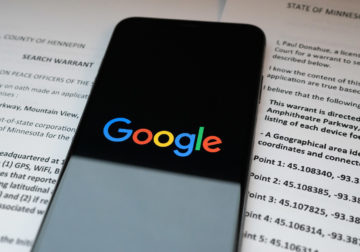Emily Berman in the Boston Review:
 As most people know by now, technology is dramatically reshaping the practice of policing. Consider how an investigation might unfold after a spate of shoplifting incidents at a big-box retail store. Authorities believe the same person is responsible for all of them, but they have no leads on the perpetrator’s identity. In a process known as “geofencing,” the police go to a judge and get a warrant instructing Google to use its SensorVault database—which stores location information on any Google users who have “location history” turned on—to provide a list of all cellphones that were within 100 yards of the store in the one-hour range of each day the robberies took place.
As most people know by now, technology is dramatically reshaping the practice of policing. Consider how an investigation might unfold after a spate of shoplifting incidents at a big-box retail store. Authorities believe the same person is responsible for all of them, but they have no leads on the perpetrator’s identity. In a process known as “geofencing,” the police go to a judge and get a warrant instructing Google to use its SensorVault database—which stores location information on any Google users who have “location history” turned on—to provide a list of all cellphones that were within 100 yards of the store in the one-hour range of each day the robberies took place.
More here.
